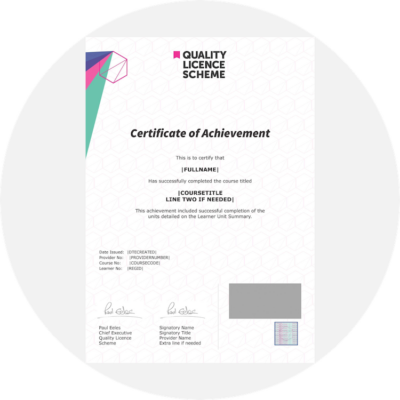
Awarding body:
Skills and Education Group
Study time:
12 months
Study method:
Online
£299.00
Cognitive Behavioural Therapy (CBT) is one of the best known techniques used in counselling and is often used to treat anxiety and depression. This CBT Level 3 course looks at this technique in detail and arms students with the knowledge required to work with clients and use CBT to help people to overcome their psychological issues.

Choose your enrolment options
About this Course
Working with people that suffer from addiction can be very challenging for counsellors and this course is perfect to learn the necessary skills that should be employed in this role. The course covers many different counselling types and explains ways of working with people that suffer from addiction in order to rehabilitate and tackle their issues.
| Study Time: | 100 hours |
| Enrolment length: | 12 months |
| Course Format: | Online |
| Entry Requirements: | None Specific |
Upon completion of this course, students receive a Quality Licence Scheme certificate and an OLC Certificate. All certification fees are included in your course fees.
Certification
To complete the Cognitive Behavioural Therapy Level 3 course you will need to submit and pass all of the tutor marked assignments. There are 6 assignments in the course and no need to purchase any textbooks as we provide all of the lessons and materials required to learn the syllabus. There is no formal exam and the certification fee is included in the course fees.
Course Content
This course assesses the following units:
Unit 1: Introduction of CBT
Cognitive behavioural therapy (CBT) is applied in a therapeutic setting to try and help clients who have negative, unrealistic thoughts to ‘reprogramme’ how they think so that these thoughts can be replaced with ones that are more realistic and more positive. Failure to do this can lead to psychological disorders.
CBT works on the assumptions that thoughts, emotions and behaviour are linked and so any distress is likely to be caused by the way that we think about and interpret certain situations. In other words, people ‘feel the way they think and, as such, CBT aims to help people think in a more positive manner in order to act in a more positive manner.
- Advantages of CBT
- Disadvantages of CBT
- CBT background
- Behavioural models
- Triadic structures of CBT
Unit 2: Outline of CBT
This unit will introduce the concept of the therapeutic relationship and then continue to examine what kind of skills will be applied when sessions are carried out.
After this, we will examine the components of a session in more detail and bring special focus to what the CBT assessment involves, as this is a vital part of the CBT process. We will then define what is meant by ‘self-concept’ and what its relevance is to CBT both in theory and in practice.
Finally, we will look at the important feature of transference and the effect that this can have on the relationship between the client and the therapist, including ways that it can be identified and resolved without detriment to the relationship.
- Relationships
- Factors effecting the client relationship
- How CBT is delivered
- Assessing clients
- Reflection and self image
Unit 3: Strategies when applying therapy
This unit will further explore the types of assessment that we looked at briefly in the previous one and you will hopefully be able to further appreciate the unique approach of CBT compared to other types of therapy.
Finally, we will consider the ending of the CBT programme, including how this will happen and what it means for clients and their future, once their relationship with the therapist has come to a conclusion.
- Assessing the needs of clients
- The downward arrow technique
- Case formulation
- CBT strategies
- Identifying cognitive biases
- Solving issues
- Session organisation
Unit 4: Physiology and depression
This unit aims to give a thorough explanation of the central nervous system and we will look at how drugs affect it because many clients who receive therapy for depression and anxiety related issues are also taking medication to help control their condition.
Finally, we will discuss how CBT can help with depression with an opportunity to look at a case study.
- The brain and central nervous system
- The spinal cord
- Depression and CBT
- Treatments for depression
- Research and effectively tackling depression with CBT
- Case study
Unit 5: Personality disorders
This unit for the course will focus on personality disorders, so firstly we will take a look at what these include.
After this, we will discuss specific types of disorder so that you will be able to appreciate the signs and symptoms of specific ones and therefore, hopefully know how to recognise them.
We will end the unit by reviewing CBT, examining in more detail for whom it is likely to be beneficial and why and for whom another type of therapy may be more effective.
- Different disorders
- Personality disorder definitions
- Causes
- Using CBT to treat schizophrenia
Unit 6: Psychological disorders
Firstly we will look at anxiety and discuss its prevalence within the UK as well as some of its causes and how CBT can help sufferers to overcome or control it. After which we will consider obsessive-compulsive disorder (OCD), which is often a misunderstood condition.
After this, we will discuss post-traumatic stress disorder, which, like OCD, is often misunderstood.
Finally, we will end the unit by looking at phobias and panic disorders with a close examination of the types of phobias people are most likely to suffer from as well as what is meant by ‘panic’ and what its causes might be.
- Anxiety and CBT
- Panic attack disorders
- Explanations for anxiety
- Treating OCD
- Possible session structures
- Treating PTSD
- Irrational thinking
This course can be taken over a 12 month period but you can complete it as fast or as slowly as you wish.
Online study and instant enrolment
All of our students are given access to our Online Campus through their own personal login and password. As soon as you complete your enrolment, you would have immediate access to your account which allows you to make a start working through the lessons. Tackle your assignments as your own pace and contact your tutor to access any help and support you need. The course itself is set out in a very simple layout, making it easy to work through the topics and complete your assessments.
Our Online Campus includes:
- Instant enrolment – access everything on your course from the moment you enrol.
- Personal account logins – login any time, 24/7.
- Full support throughout – message your tutor, use our online chat or give us a call.
- Online assignment submissions – upload work online from the comfort of home.
- Self-led learning – study at your own pace so you can pass much faster.
- Safe e-portfolio system – store all of your work in your account.
- Progression tracking – easily see what assignments you have left to complete.
- Details help centre – get instructions and guidance every step of the way.
- Unlimited attempts – submit as many attempts at your assignments as you need.
Unlimited assessment submissions
All of the assessments for this course are completed through our Online Campus. You can attempt each one as many times as needed to ensure you pass. After every attempt, your tutor will provide detailed feedback and tips on how you can improve going forward. Quickly see your progress during your studies by checking your progress bar and seeing the remaining assessments you need to complete.
Get full tutor support
Throughout your enrolment with the Online Learning College, you can access support at any time you need. All students are assigned a personal tutor who will mark all of your work and provide detailed feedback after every submission. Your tutor will be an industry expert with a full knowledge of the course content and will be able to help you at any point along your learning journey. One of the best tools at your disposal is your tutor – you can ask as many questions of them as you wish to and they will be happy to help at any time.
We also have a brilliant support team on hand and available through email, online chat and over the phone. This team is there to help with any questions which are more generic, such as providing support in submitting work through your account or getting your certificate when you have completed your course. We pride ourselves on ensuring the support you receive is the best in the business – help and guidance is fast and detailed every time you contact a member of the team.
Assessments
To pass this course learners must pass 6 assignments. These are completed after navigating through the corresponding lessons and writing your answers to assignment questions. Once these have been read and marked by your personal tutor, feedback and marks are provided to students which contain helpful tips to improve work in future assignments.
Enrolment Length
All of our courses are allocated plenty of time for students to complete their studies and all materials are self-led so that you can complete the course at your own pace, but you have access to the course on the Campus for 12 months from your enrollment date. Should you require additional time on one of our courses you can extend your enrolment by 30 days for an additional fee of £60. As well as this we operate a 14 day money back guarantee on every one of our qualifications- that’s how confident we are of how you will love studying with us!

Quality License Scheme Certification
At the end of this course, successful learners will be given the option to receive a Certificate of Achievement from the Quality Licence Scheme and a Learner Unit Summary (which lists the components the learner has completed as part of the course).
Quality License Scheme Certificate
All Certification Costs Included
Frequently Asked Questions
Learn more about this course and others that we offer. If you still have any questions, simply contact our course advisors on 0800 772 0887 or email info@ol-college.com.
What is included in this Cognitive Behavioural Therapy Level 3 course?
All of our courses come with everything you need. Your lessons, tuition and certification costs with the Quality Licence Scheme are included in the cost of this course. There is nothing else that you need to buy or pay for in order to finish the course and get your certificate.
Is this course regulated?
At the end of this course successful learners will be given the option to receive a Certificate of Achievement from the Quality Licence Scheme and a Learner Unit Summary (which lists the components the learner has completed as part of the course).
The course has been endorsed under the Quality Licence Scheme. This means that Oakwood Home Learning has undergone an external quality check to ensure that the organisation and the courses it offers, meet defined quality criteria. The completion of this course alone does not lead to a regulated qualification* but may be used as evidence of knowledge and skills gained. The Learner Unit Summary may be used as evidence towards Recognition of Prior Learning if you wish to progress your studies in this subject. To this end the learning outcomes of the course have been benchmarked at the level shown against level descriptors published by Ofqual, to indicate the depth of study and level of demand/complexity involved in successful completion by the learner.
The course itself has been designed by Oakwood Home Learning to meet specific learners’ and/or employers’ requirements which cannot be satisfied through current regulated qualifications. The Quality Licence Scheme endorsement involves robust and rigorous quality audits by external auditors to ensure quality is continually met. A review of courses is carried out as part of the endorsement process.
The Quality Licence Scheme is part of the Skills and Education Group, a charitable organisation that unites education and skills-orientated organisations that share similar values and objectives. With more than 100 years of collective experience, the Skills and Education Group’s strategic partnerships create opportunities to inform, influence and represent the wider education and skills sector.
The Skills and Education Group also includes two nationally recognised awarding organisations; Skills and Education Group Awards and Skills and Education Group Access. Through our awarding organisations we have developed a reputation for providing high-quality qualifications and assessments for the education and skills sector. We are committed to helping employers, organisations and learners cultivate the relevant skills for learning, skills for employment, and skills for life.
Our knowledge and experience of working within the awarding sector enables us to work with training providers, through the Quality Licence Scheme, to help them develop high-quality courses and/or training programmes for the non-regulated market.
*Regulated qualification refers to those qualifications that are regulated by Ofqual / CCEA / Qualification Wales
Do I have to sit an exam?
No, there are no exams for this Cognitive Behavioural Therapy Level 3 course. Everything is assessed through coursework and assignments which you can submit at anytime within the enrolment term.
Am I assigned a tutor for this Cognitive Behavioural Therapy Level 3 course?
You are! Once you have enrolled then you will have an assigned tutor, this person is the one who will be marking your work, providing feedback, and passing your work. If you need to speak to your tutor at any time throughout your enrollment then you can message them via the campus and they will reply within 24 hours of out working hours.
Can I speak to someone before I enrol?
Of course! We have course advisors and a customer service team in the office Monday to Friday 9am until 5pm who will be happy to help and answer any questions that you may have. You can call us on 0800 772 0887, email us at info@ol-college.com or we even have a live chat facility.
How long do I have to study?
The enrolment term is 12 months, however, as long as you complete all of the written assignments and practical tasks (if applicable) then you can complete the course sooner if you wish. If you need any additional time after the 12 months then you can also extend which costs £60 per month and you can do this as many times as needed.
What are the payment options?
There are various payment options for this Cognitive Behavioural Therapy Level 3 course. The first option will be for you to purchase the course and pay in full upon enrolment. The second option is the pay monthly option, this is completely interest free and splits the cost into 12 monthly payments. Finally, we can send an invoice with 30 days payment terms if your employer will be funding the cost of the course – if you would like this option, then please ask your employer to get in contact with us so we can provide them with the details we will need.
Do you offer any funding for the course?
Unfortunately we don’t offer any free or funded courses but you can split the cost into 12 monthly payments which is completely interest free.
Do I need to buy anything else for this Cognitive Behavioural Therapy Level 3 course?
Everything that you will need will be provided to you when you enrol, you will also need to complete some of your own research too. Buying text books and other resources can become costly so we don’t ask you to or recommend buying anything, there is lots of free and very useful information online!
How do I see my course material/resources?
Everything that you will need for your course will be accessible on our online campus. You can select the online and paper versions of most of our courses too, if you select this option then there will be an additional £35 cost, this covers the cost of us printing out a full course pack in a ring binder folder and sending out via Royal Mail 1st Class, Tracked & Signed delivery.
How do I log in and access my course?
Once you have enrolled then you have access to the campus right away to get started on your course. You can log in by going to our website and clicking ‘Log in’ at the top right hand side of the page. Your username is the email address that you used to enrol and your password is the one you created at the checkout when enrolling.
When will I receive my certificate?
Once you have completed and passed all units and your course is paid in full (either paid in full upon enrolment or if paying monthly then the remaining balance paid or monthly payments complete), then we can request your certificate from the Awarding Body. Certificate’s take 6-12 weeks to arrive with us and once we receive it we will then contact you to confirm the address to post it to. Certificate’s are sent via Royal Mail 1st Class, Tracked & Signed delivery.
What happens if I fail an assignment?
If you fail an assignment, then please do not worry! You can resubmit your assignment as many times as needed until you pass. Each time you submit an assignment then your tutor will mark it and provide feedback, you can then make the amendments and resubmit and have the new version marked again.
How long does it take to mark my work?
We have a marking timescale of 5 working days from the submission, your tutor will mark your work and provide feedback with if you need to make any amendments to enable you to pass. Please note, we do ask that learners don’t upload more than one submission at a time as this will delay the marking not just for yourself but for other learners too.
Do I have to attend or view any live/virtual lessons?
You don’t, everything is in written, text, image and diagram format. You will have access to the campus 24/7 to be able to log in and complete your work. You won’t need to view any videos or audio lessons.
What device can I/shall I use?
As you will have assignments to write and type up for submission then we would recommend using a computer or laptop for this as you will need to use a software such as Microsoft Word or Google Docs to type these. You may also be able to use an iPad/tablet for this. You can use a smartphone if you wish but you may find it difficult and it would probably be easier on a larger screen/device.
How do I complete my assignments?
Once you have enrolled and accessed the campus you will see your assignment tasks and criteria of what needs to be covered in each assignment.
Our latest reviews
Fully supported by an online tutor
Our courses come with full tuition from an expert tutor. Your tutor can be contacted through our messaging system, and the same person will provide feedback on your assignments. We also have a dedicated admin team on hand to help over the phone, through live chat, and by email.
1 working day for replies to messages
5 working days for feedback on assignment
Our turnaround times are the best in the industry!

Start today with immediate enrolment
Expert support at all times
Our speedy support promise
When you study with us, we ensure a speedy service. That's why our current timeframes for marking and support are the best in the business.






